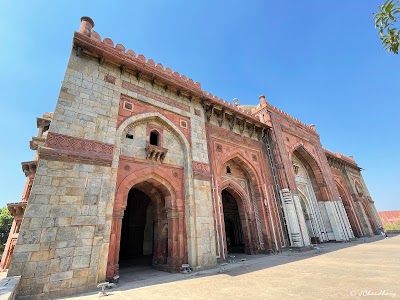Qala-i-Mahmood (قلعه محمود)
Related Places
Overview
Introduction to Qala-i-Mahmood
Nestled in the rugged terrain of Zabul province, Afghanistan, lies the ancient fortress of Qala-i-Mahmood (قلعه محمود), a captivating landmark steeped in history and cultural significance. This impressive structure, whose name translates to "Fortress of Mahmood," stands as a testament to the region's storied past and its strategic importance throughout the centuries. For foreign travelers venturing into this lesser-known part of Afghanistan, Qala-i-Mahmood offers a glimpse into the enduring spirit of the Afghan people and the architectural prowess of their ancestors.
A Historical Perspective
Qala-i-Mahmood has a rich history that dates back to the medieval period. It is believed to have been constructed during the reign of the Ghaznavid Empire, which ruled over much of present-day Afghanistan and parts of the Indian subcontinent. The fortress served as a military stronghold, guarding key routes and protecting the region from invaders. As you explore its ancient walls, you can almost hear the echoes of battles fought and alliances forged within its confines. The fort is not just an architectural marvel; it is a keeper of stories that reflect the resilience of a people who have endured centuries of conflict and change.
Architectural Features
The architectural design of Qala-i-Mahmood is a remarkable blend of traditional Afghan styles and influences from various empires that have touched the region. The fortress is constructed from locally sourced materials, primarily mud brick, and features imposing walls that rise dramatically against the backdrop of the Zabul mountains. Its strategic location atop a hill provides breathtaking panoramic views of the surrounding landscape, making it a perfect spot for photography and contemplation. As you wander through the fort's winding corridors and expansive courtyards, you will encounter remnants of ancient structures, including watchtowers and storage rooms, that hint at its former grandeur.
Visiting Qala-i-Mahmood
For travelers seeking to visit Qala-i-Mahmood, it is essential to approach with respect and awareness of the local culture. The journey to Zabul can be challenging due to the region's rugged terrain and security considerations, so it’s advisable to travel with a knowledgeable local guide who can navigate the area and provide insights into its history. Once you arrive, take your time to explore the fortress, engage with local residents, and learn about the significance of this historical site. The warm hospitality of the Afghan people is renowned, and you may find yourself invited to share a meal or a cup of tea, enriching your experience further.
Cultural Significance
Beyond its physical presence, Qala-i-Mahmood holds cultural significance for the people of Zabul. It symbolizes strength, endurance, and the rich heritage of Afghan civilization. The fortress is a focal point for local gatherings and celebrations, where stories of the past are shared among generations. As you stand within its walls, you will not only appreciate the architectural beauty but also the communal pride that resonates throughout the region. Engaging with the local culture, perhaps through traditional music or crafts, can provide deeper insight into the vibrant life that continues to thrive around this ancient landmark.
Conclusion
In conclusion, Qala-i-Mahmood is not merely a destination; it is a journey into the heart of Afghanistan's history and culture. For foreign travelers, it represents an opportunity to witness the resilience and beauty of a land often misunderstood. With its breathtaking vistas, rich historical context, and the warmth of its people, a visit to this remarkable fortress will leave an indelible mark on your soul and a deeper appreciation for the complexities of Afghan life. Whether you're an avid history buff or simply a curious traveler, Qala-i-Mahmood promises an unforgettable experience that transcends time and place.



